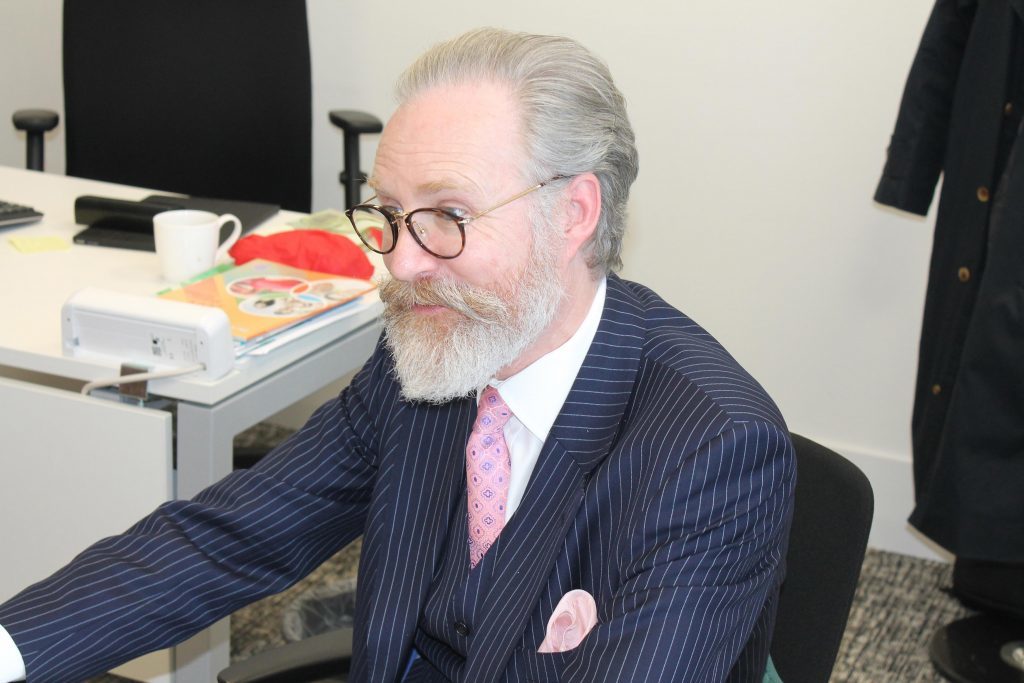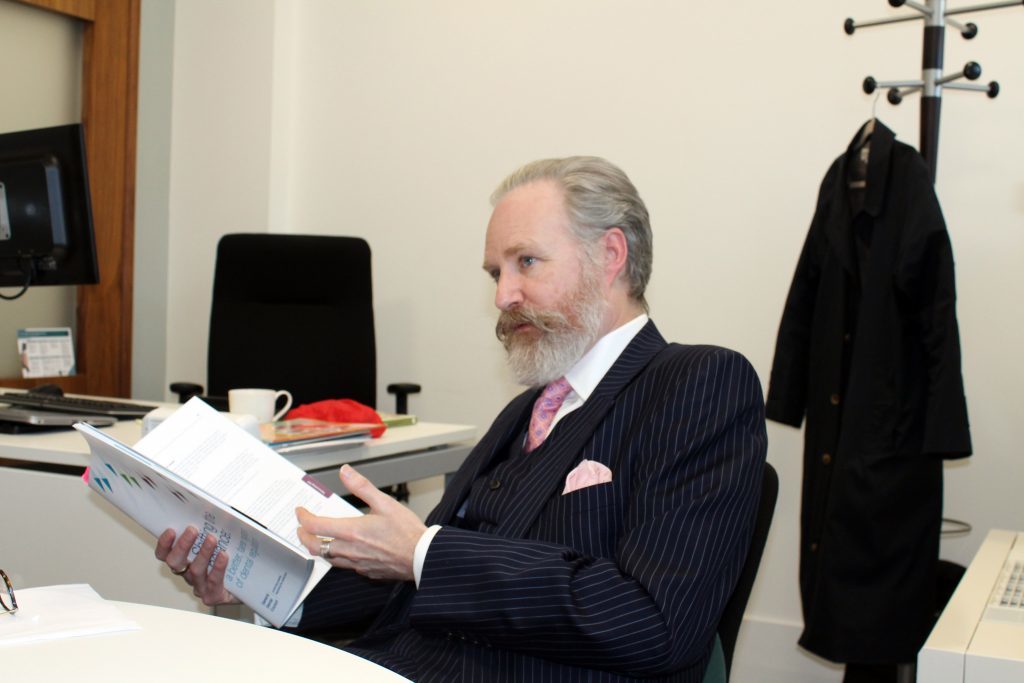 After the GDC announced its ARF for 2019, Seb Evans went to speak to Ian Brack to understand why the council decided to keep it so high.
After the GDC announced its ARF for 2019, Seb Evans went to speak to Ian Brack to understand why the council decided to keep it so high.
The General Dental Council (GDC) has again decided to keep its annual retention fee (ARF) at the same level for 2019 – £890 for dentists, £72 for each specialty and £116 for dental care professionals. This is the third year it has decided to keep the ARF at this level following a huge 55% increase in 2015. Various reasons have been given for the high ARF, but the most pressing are an increase in fitness to practise (FtP) cases, carrying out essential organisational improvements and replenishing reserves.
The British Dental Association (BDA), along with many other dental associations, has previously said the ARF is far too high and accused the regulator of ‘hoarding’ registrant’s money. With so much pressure on the GDC to reduce its ARF, we spoke to Ian Brack, chief executive and registrar of the GDC, to better understand why the regulator has not done so this year.
FtP cases
One of the main reasons for the initial jump in ARF was down to a huge rise in FtP cases. At the time Evlynne Gilvarry, chief executive and registrar at the time, told Dentistry magazine there were a number of reasons for the increase in FtP cases, such as a better-informed patient, a new regime with NHS England, which meant complaints normally dealt with locally we’re passed on to the GDC, and an increase in no-win, no-fee solicitors telling patients to complain directly to the GDC.
What’s happening now? The GDC has shown that numbers going through its FtP process are beginning to drop. In 2016 there was a total of 2,630 complaints received by the GDC, which dropped by 27% to 1,910 in 2017. The GDC has also introduced case examiners, who are helping to filter cases that should be passed on to a Practice Committee and those where another outcome can be found.
With cases dropping there have also been financial savings. In 2016 the GDC spent £26m on FtP cases. Last year that figure dropped to just over £20m.
What does Ian Brack say about it? ‘The good story is we’ve made efficiencies and savings. We’ve cut costs out of the organisation that didn’t need to be there, we’ve streamlined processes, some of which you’ll see more of in the 2018 accounts. Already we’re cutting delay out of the system, which creates savings.’
So why hasn’t this resulted in a drop in the ARF? The GDC claims that each FtP case that progresses to a full hearing has an average length of 18 months and that most costs are incurred towards the end of that process. Therefore, savings relating to the drop in case load seen in 2017 will not be felt until further down the road, and until that has happened the GDC says it cannot reduce the ARF.
Last year the GDC didn’t complete all the FtP work it had planned either. Ian Brack says that some of what looks like savings in the annual report is actually deferred expenditure – outgoings that were budgeted for in 2017, but didn’t happen because work slipped behind.
Essential improvements
Ever since the jump in FtP cases, the GDC has gone about reorganising itself and promising change. This culminated in its publication Shifting the balance, which described the GDC’s future plans for regulating the profession. In it the GDC says it wants to ‘shift the focus from enforcement to prevention’, encouraging engagement with patients and professionals further upstream.
What’s happening now? The GDC says there are big changes going on, including relocating to Birmingham and establishing a significant operational hub there. The move away from London should create some significant savings in the long run, as it will reduce their London footprint from three buildings to one.
Other changes include carrying out an end-to-end review of FtP to streamline the whole process, which will create savings, and implementing everything that is outlined in Shifting the balance.
What does Ian Brack say about it? ‘Within the GDC there are internal risks. Those risks relate to the change processes we’re going through. We’re already doing things that are changing the way we’re working. This has financial risk involved in it because it has costs.
‘We’re relocating: we’re moving staff to Birmingham and establishing a significant operational hub there. This building (Wimpole street, in London) will stay our national headquarters, and one reason for that is that we get it for a peppercorn rent, but many of our operational staff will eventually be based in Birmingham. That’s a big change that will bring long-term savings but there are up-front costs involved and of course we’ve got risk involved in that too.
‘And we’ve got Shifting the balance, which we’ve got to deliver. Shifting the balance involves investment. It involves investing in new upstream ways of working. You’ve got three major areas of alteration and change in the organisation with the associated risks.’
So why hasn’t this resulted in a drop in the ARF? As Ian Brack says, there are big upfront costs involved, particularly when it comes to relocating to Birmingham. Implementing Shifting the balance requires investment (although we are approaching the midway point of these plans) and Ian says there will be times when he will be ‘double running’ parts of the organisation in order to get new areas up to speed before closing down old ways of working.

Replenishing reserves
Throughout the last three years, the GDC has claimed that if ever possible it would reduce its ARF. When pushed on this, Evlynne Gilvarry said the GDC needed between four and six months operating costs in its reserves before it could consider reducing the ARF.
What’s happening now? In its latest annual report, the GDC was just beyond its four to six-month target. When we met with Ian Brack, he said they have reached a place where they’re comfortable with the reserves.
What does Ian Brack say about it? ‘The reserves have recovered after several years of being dangerously low and I recognise we are now marginally above our target. We’re going to be spending more money in the short term on the things we’ve spoken about. So cost will be higher and we’ve got calls on the reserves, so we need to replenish those. Going on, we’ll have the same level of reserves when we come out of the stress period in 2019, and then the fees can hopefully come down.’
So why hasn’t this resulted in a drop in the ARF? One of the main issues complicating the matter is Brexit. Brexit will bring a number of unknowns, but there is one big problem the regulator does know about – Mutual Recognition of Professional Qualifications (MRPQ). This allows dentists qualified in other EU nations to automatically join the register without undergoing any further tests. If we lose MRPQ when we leave the EU, the GDC will need to start either checking that candidates coming to the UK are suitable, with the current way of doing this being the Overseas Registration Exam, or that establishments offering dental qualifications are appropriate, both of which have costs involved.
The GDC also points to the big changes it says it’s making within the organisation. Ian Brack says: ‘The reserves are like a bucket with a hole in the bottom in that the funds you see going in are also going out and I need to keep putting stuff in until I plug the hole in 2019.’
Author’s thoughts
For every reason to reduce the ARF, the GDC seems to have a counter argument to keep it high. Although the GDC appears to have huge amounts of money in its reserves, we concede it would be irresponsible not to account for the big changes on the horizon, such as Brexit and creating a hub in Birmingham when setting the ARF.
That said, the GDC keeps promising that it’s going to make further savings in the organisation but it’s easy to live to your means, and we get the impression that when we come back around to discussing ARF levels there will be other reasons to keep the fee high.
The next time the ARF comes around for consultation, it will not be on the fee alone. Instead the next consultation will be on everything the GDC has in its three-year plan, how much that’s going to cost and then looking at the resulting ARF.
It’s therefore imperative that dental professionals get involved in the next consultation. If they don’t and the ARF remains high, the GDC will only turn to the profession and say it gave registrants the option to choose something different.
You may also be interested in:


